Strictly Personal
10,000 rules that have tried ‑ and failed – to kill trade in the East African Community, By Charles Onyango-Obbo
Published
1 year agoon

During the week, the business press in Nairobi, quoting a government paper, reported that Kenya and Tanzania had resolved 23 problematic regulations that slowed down trade between the two countries since President Samia Suluhu Hassan visited Kenya in May 2021.
The non-tariff barriers (NTBs) ranged from rules on licences to quotas, embargoes, foreign exchange restrictions and import deposits. The reports made the point that a lot of progress had been made.
It can be difficult to imagine that there were still as many as 23 rules hindering trade between two East Afriacan Community economies, but that is if you haven’t heard the full story.
The resolution of those 23 squabbles brought the number of cumulative NTBs that were sorted and eliminated to 256 by end of June 2022.
Those 256, however, are not even the tip of the iceberg. An expert who studies the bewildering rules East African bureaucrats have imposed on what — on paper — is supposed to an open the Common Market told me there are nearly 1,000 of them governing just food trade in the EAC!
At that rate, if one adds up the regulations that get in the way of trade in the region, which include countless national legislations in the seven EAC partner states, not just the stuff in the EAC protocols, there could well be 10,000 of them.
During the week, the business press in Nairobi, quoting a government paper, reported that Kenya and Tanzania had resolved 23 problematic regulations that slowed down trade between the two countries since President Samia Suluhu Hassan visited Kenya in May 2021.
The non-tariff barriers (NTBs) ranged from rules on licences to quotas, embargoes, foreign exchange restrictions and import deposits. The reports made the point that a lot of progress had been made.
It can be difficult to imagine that there were still as many as 23 rules hindering trade between two East Afriacan Community economies, but that is if you haven’t heard the full story.
The resolution of those 23 squabbles brought the number of cumulative NTBs that were sorted and eliminated to 256 by end of June 2022.
Those 256, however, are not even the tip of the iceberg. An expert who studies the bewildering rules East African bureaucrats have imposed on what — on paper — is supposed to an open the Common Market told me there are nearly 1,000 of them governing just food trade in the EAC!
At that rate, if one adds up the regulations that get in the way of trade in the region, which include countless national legislations in the seven EAC partner states, not just the stuff in the EAC protocols, there could well be 10,000 of them.
That is 10,000 reasons why there isn’t free flow of trade in the EAC. To see the impact they are having, consider what happened when Kenya and Tanzania dealt with just those two dozen NTBs.
The reports noted that trade between Kenya and Tanzania crossed the Ksh100 billion (nearly $808 million) mark for the first time. Multiply that across the EAC and you are looking at billions of dollars left on the table because of NTBs.
If East Africa truly swung its markets open, there would be a lot of money swishing around, jobs galore for youth, and booming economies generating a lot of taxes for the politicians to feed on. It is a mystery that this national economic interest is still trumped by nationalism and small-minded protectionism.
With thousands of these trade-hampering regulations, for most business to be done, customs and other officials at the border have to behave like traffic police in most of East Africa. Most people don’t realise it, but the traffic rules in the region, going back to the colonial period, are a mountain. New rules have only piled on old ones.
There are thousands of rules, down to the colour of cars, ride height, tyre type, extinguishers, wattage of lights, tools that should be in a car, drivers’ vision, and so forth which, if enforced 100 percent, there would be no cars on East Africa’s roads.
Today, you will roll up to an EAC border point, and cross into the next country while eating roast maize or a fresh mango and no one will flag you down. If you read the rules in detail, that is not permissible. Happily, the rules are sometimes overcome by bewildering borders too.
Arua is a hectic city in northwest Uganda, situated strategically between the country’s borders with the Democratic Republic of Congo and South Sudan.
A few kilometres out of Arua, the official Uganda-DRC customs post is Vurra. It’s not as famous as Namanga, Busia, Malaba, Katuna/Gatuna, or Nimule, and no fancy one-stop border post has been built there yet.
However, it’s a fascinating little devil of a border. When you get past the boom gate on the Uganda side, you head into DRC. But that is only if you turn right. Despite having crossed the gate, if you turned left you would remain in Uganda. If you stay left, you are essentially governed by a different logic about the border, than if you if go right.
There is nothing stopping the Ugandan chap who turned left from turning right into DRC a kilometre in, or to hand a packet of maize flour to his Congolese mistress. Yet, somehow, an invisible order keeps most people in their right territorial lane.
Not always, though.
In 2021, Uganda closed the Vurra customs post for two months after Congolese youth crossed and erected a barrier and other structures 300 metres inside Uganda, claiming it was part of DRC territory. It didn’t make regional or international news. All attention was still on the Katuna (Gatuna in Rwanda) border that had been closed at that point for two years.
The matter was solved with little drama. When the border reopened, as we saw with Katuna/Gatuna last year, the people on both sides went into wild celebrations. The confusion of the Congolese youth about the border line, and the reluctance of the Ugandan authorities to use a hammer to resolve the “incursion,” was understandable.
Besides the big trucks carrying fuel and other goods to the DRC and South Sudan, the most common trade vehicles on the roads there are the lorries, young people perched on top, carrying Ugandan cattle to the borders. Some of them come from as far as western Uganda, ferrying cattle to South Sudan. It is a surprisingly orderly and big business. If the weird rules about livestock trade were enforced, perhaps not a single animal would cross the border.
And the local Congolese and South Sudan elite would miss out on their beef steak. Thank goodness for common sense, and some cross-border pragmatism.
It would be wonderful the day that spirit infected all of East African trade.
Charles Onyango-Obbo is a journalist, writer, and curator of the “Wall of Great Africans”. Twitter@cobbo3
You may like
-


Cut to undersea cable causes internet disruptions across East, Southern Africa
-
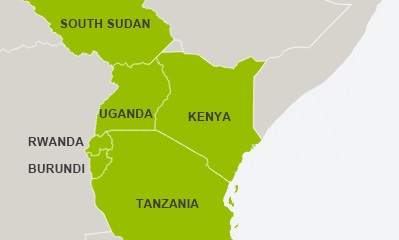

Our leaders need to develop an EAC character that abhors NTBs, By Joachim Buwembo
-
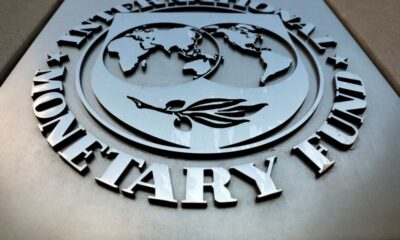

IMF eases East Africa’s indebted states’ burden with $1.9b deals
-
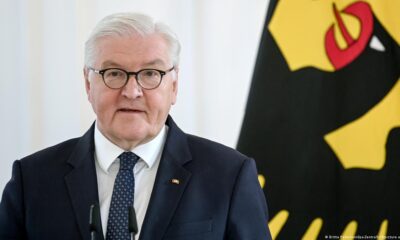

As Germany’s Chancellor rounds off African tour, its President begins own tour in Tanzania
-
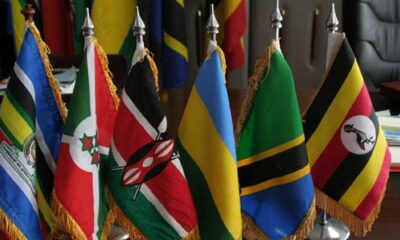

Kenya is to EA what the US is to the world; you just can’t write it off, By Joachim Buwembo
-


Congo DR: Kenya appoints new regional force leader amid criticism over support for rebel group, M23
Strictly Personal
If I were put in charge of a $15m African kitty, I’d first deworm children, By Charles Onyango-Obbo
Published
4 days agoon
May 13, 2024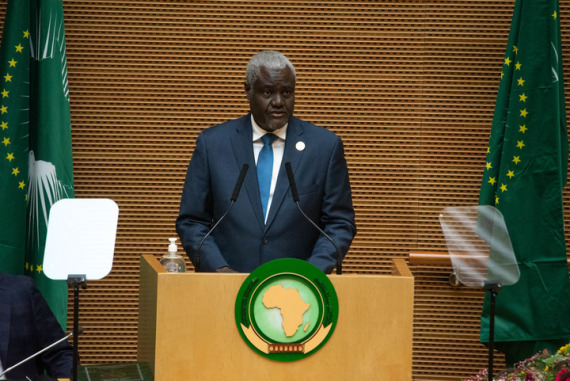
One of my favourite stories on pan-African action (or in this case inaction), one I will never tire of repeating, comes from 2002, when the discredited Organisation of African Unity, was rebranded into an ambitious, new African Union (AU).
There were many big hitters in African statehouses then. Talking of those who have had the grace to step down or leave honourably after electoral or political defeat, or have departed, in Nigeria we had Olusegun Obasanjo, a force of nature. Cerebral and studious Thabo Mbeki was chief in South Africa. In Ethiopia, the brass-knuckled and searingly intellectual Meles Zenawi ruled the roost.
In Tanzania, there was the personable and thoughtful Ben Mkapa. In Botswana, there was Festus Mogae, a leader who had a way of bringing out the best in people. In Senegal, we had Abdoulaye Wade, fresh in office, and years before he went rogue.
And those are just a few.
This club of men (there were no women at the high table) brought forth the AU. At that time, there was a lot of frustration about the portrayal of Africa in international media, we decided we must “tell our own story” to the world. The AU, therefore, decided to boost the struggling Pan-African New Agency (Pana) network.
The members were asked to write cheques or pledges for it. There were millions of dollars offered by the South Africans and Nigerians of our continent. Then, as at every party, a disruptive guest made a play. Rwanda, then still roiled by the genocide against the Tutsi of 1994, offered the least money; a few tens of thousand dollars.
There were embarrassed looks all around. Some probably thought it should just have kept is mouth shut, and not made a fool of itself with its ka-money. Kigali sat unflustered. Maybe it knew something the rest didn’t.
The meeting ended, and everyone went their merry way. Pana sat and waited for the cheques to come. The big talkers didn’t walk the talk. Hardly any came, and in the sums that were pledged. Except one. The cheque from Rwanda came in the exact amount it was promised. The smallest pledge became Pana’s biggest payday.
The joke is that it was used to pay terminal benefits for Pana staff. They would have gone home empty-pocketed.
We revive this peculiarly African moment (many a deep-pocketed African will happily contribute $300 to your wedding but not 50 cents to build a school or set up a scholarship fund), to campaign for the creation of small and beautiful African things.
It was brought on by the announcement by South Korea that it had joined the African Summit bandwagon, and is shortly hosting a South Korea-Africa Summit — like the US, China, the UK, the European Union, Japan, India, Russia, Italy, Saudi Arabia, and Turkey do.
Apart from the AU, whose summits are in danger of turning into dubious talk shops, outside of limited regional bloc events, there is no Pan-African platform that brings the continent’s leaders together.
The AU summits are not a solutions enterprise, partly because over 60 percent of its budget is funded by non-African development partners. You can’t seriously say you are going to set up a $500 million African climate crisis fund in the hope that some Europeans will put up the money.
It’s possible to reprise the Rwanda-Pana pledge episode; a convention of African leaders and important institutions on the continent for a “Small Initiatives, Big Impact Compact”. It would be a barebones summit. In the first one, leaders would come to kickstart it by investing seed money.
The rule would be that no country would be allowed to put up more than $100,000 — far, far less than it costs some presidents and their delegations to attend one day of an AU summit.
There would also be no pledges. Everyone would come with a certified cheque that cannot bounce, or hard cash in a bag. After all, some of our leaders are no strangers to travelling around with sacks from which they hand out cash like they were sweets.
If 54 states (we will exempt the Sahrawi Arab Democratic Republic for special circumstances) contribute $75,000 each, that is a good $4.05 million.
If just 200 of the bigger pan-African institutions such as the African Development Bank, Afrexim Bank, the giant companies such as MTN, Safaricom, East African Breweries, Nedbank, De Beers, Dangote, Orascom in Egypt, Attijariwafa Bank in Morocco, to name a few, each ponied up $75,000 each, that’s a cool $15 million just for the first year alone.
There will be a lot of imagination necessary to create magic out of it all, no doubt, but if I were asked to manage the project, I would immediately offer one small, beautiful thing to do.
After putting aside money for reasonable expenses to be paid at the end (a man has to eat) — which would be posted on a public website like all other expenditures — I would set out on a programme to get the most needy African children a dose of deworming tablets. Would do it all over for a couple of years.
Impact? Big. I read that people who received two to three additional years of childhood deworming experience an increase of 14 percent in consumption expenditure, 13 percent in hourly earnings, and nine percent in non-agricultural work hours.
At the next convention, I would report back, and possibly dazzle with the names, and photographs, of all the children who got the treatment. Other than the shopping opportunity, the US-Africa Summit would have nothing on that.
Charles Onyango-Obbo is a journalist, writer, and curator of the “Wall of Great Africans”. X@cobbo3
Strictly Personal
AU shouldn’t look on as outsiders treat Africa like a widow’s house, By Joachim Buwembo
Published
1 week agoon
May 9, 2024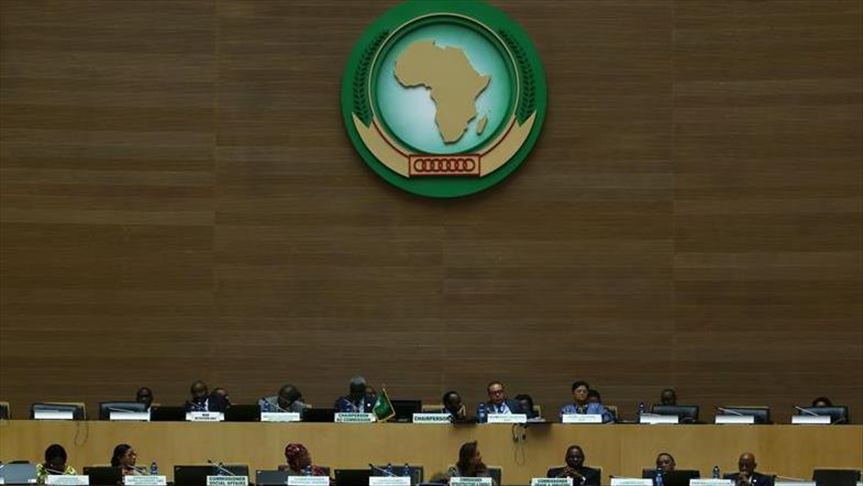
There is no shortage of news from the UK, a major former colonial master in Africa, over whose former empire the sun reputedly never set. We hope and pray that besides watching the Premier League, the managers of our economies are also monitoring the re-nationalisation of British Railways (BR).
Three decades after BR was privatised in the early to mid-nineties — around the season when Africa was hit by the privatisation fashion — there is emerging consensus by both conservative and liberal parties that it is time the major public transport system reverts to state management.
Yes, there are major services that should be rendered by the state, and the public must not be abandoned to the vagaries of purely profit-motivated capitalism. It is not enough to only argue that government is not good at doing business, because some business is government business.
Since we copied many of our systems from the British — including wigs for judges — we may as well copy the humility to accept if certain fashions don’t work.
Another piece of news from the UK, besides football, was of this conservative MP Tim Loughton, who caused a stir by getting summarily deported from Djibouti and claiming the small African country was just doing China’s bidding because he recently rubbed Beijing the wrong way.
China has dismissed the accusation as baseless, and Africa still respects China for not meddling in its politics, even as it negotiates economic partnerships. China generously co-funded the construction of Djibouti’s super modern multipurpose port.
What can African leaders learn from the Loughton Djibouti kerfuffle? The race to think for and manage Africa by outsiders is still on and attracting new players.
While China has described the Loughton accusation as lies, it shows that the accusing (and presumably informed) Britons suspect other powerful countries to be on a quest to influence African thinking and actions.
And while the new bidders for Africa’s resources are on the increase including Russia, the US, Middle Eastern newly rich states, and India, even declining powers like France, which is losing ground in West Africa, could be looking for weaker states to gain a new foothold.
My Ugandan people describe such a situation as treating a community like “like a widow’s house,” because the poor, defenceless woman is susceptible to having her door kicked open by any local bully. Yes, these small and weak countries are not insignificant and offer fertile ground for the indirect re-colonisation of the continent.
Djibouti, for example, may be small —at only 23,000square kilometres, with a population of one million doing hardly any farming, thus relying on imports for most of its food — but it is so strategically located that the African Union should look at it as precious territory that must be protected from external political influences.
It commands the southern entrance into the Red Sea, thus linking Africa to the Middle East. So if several foreign powers have military bases in Djibouti, why shouldn’t the AU, with its growing “peace kitty,” now be worth some hundreds of millions of dollars?
At a bilateral level, Ethiopia and Djibouti are doing impressively well in developing infrastructure such as the railway link, a whole 750 kilometres of it electrified. The AU should be looking at more such projects linking up the whole continent to increase internal trade with the continental market, the fastest growing in the world.
And, while at it, the AU should be resolutely pushing out fossil-fuel-based transportation the way Ethiopia is doing, without even making much noise about it. Ethiopia can be quite resolute in conceiving and implementing projects, and surely the AU, being headquartered in Addis Ababa, should be taking a leaf rather than looking on as external interests treat the continent like a Ugandan widow’s house.
Buwembo is a Kampala-based journalist. E-mail:buwembo@gmail.com
EDITOR’S PICK
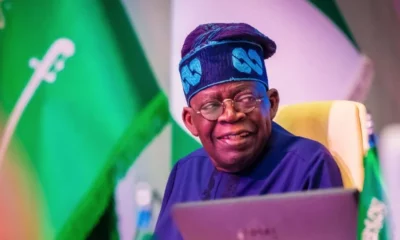

Nigerian govt to open student loan application portal May 24
The Nigerian government has announced that the portal for the long awaited student loan scheme will open on May 24,...


Google relaunches Hustle Academy with AI focus to empower African SMBs
Google has relaunched the 2024 cohort of its Hustle Academy, a programme dedicated to accelerating the growth of small and...
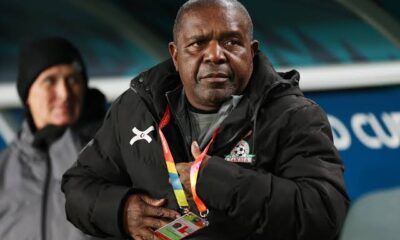

Zambia’s women national team coach face new sexual assault allegation
Zambia women national team coach, Bruce Mwape, is facing new allegations of sexual assault and misconduct at the 2023 Women’s...


China’s Hailiang, Shinzoom to establish vehicle battery installations in Morocco
Hailiang and Shinzoom, Chinese car battery makers, will establish two separate operations in Morocco as the country strives to adapt...


Nigeria targets 10,000MW hydropower through sustainable power project
Nigeria’s Minister of Power, Adebayo Adelabu, says the federal government is targeting10,000 megawatts through its Sustainable Power and Irrigation Project...


Nigeria’s inflation hits 28-year high of 33.69% in April
Nigeria’s consumer inflation reached a 28-year high of 33.69% in April, up from 33.20% in March, according to statistics agency...


Botswanan Tebogo hits at Kenyan Omanyala over claims of being African sprint king
Botswanan sprint sensation, Letsile Tebogo, has hit back at Kenyan 100m champion, Ferdinand Omanyala, over claims that he is the...


Latin America’s biggest payment processor PayRetailers expands into Africa
Latin America’s biggest payment processor, PayRetailers, has announced its expansion into Africa with coverage across four countries, Rwanda, Zambia, Uganda,...


Legendary American music icon Stevie Wonder becomes full Ghanaian citizen
Legendary American singer and songwriter, Stevie Wonder, is now officially a Ghanaian citizen after he took an oath of allegiance...


Zambian opposition New Heritage Party accuses govt of dictatorship
One of Zambian opposition parties, the New Heritage Party (NHP), has accused the government of dictatorship after the police insisted...
Trending
-

 Tech2 days ago
Tech2 days agoLatin America’s biggest payment processor PayRetailers expands into Africa
-

 VenturesNow1 day ago
VenturesNow1 day agoNigeria’s inflation hits 28-year high of 33.69% in April
-

 Metro2 days ago
Metro2 days agoNigeria: President Tinubu unveils 21 major initiatives
-

 Sports2 days ago
Sports2 days agoBotswanan Tebogo hits at Kenyan Omanyala over claims of being African sprint king


